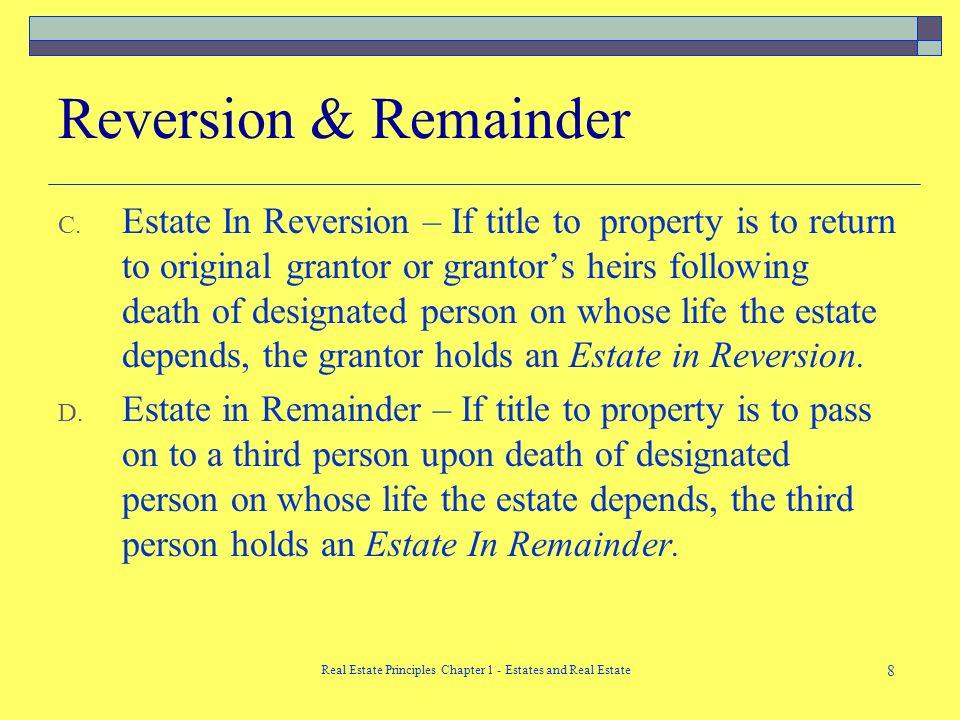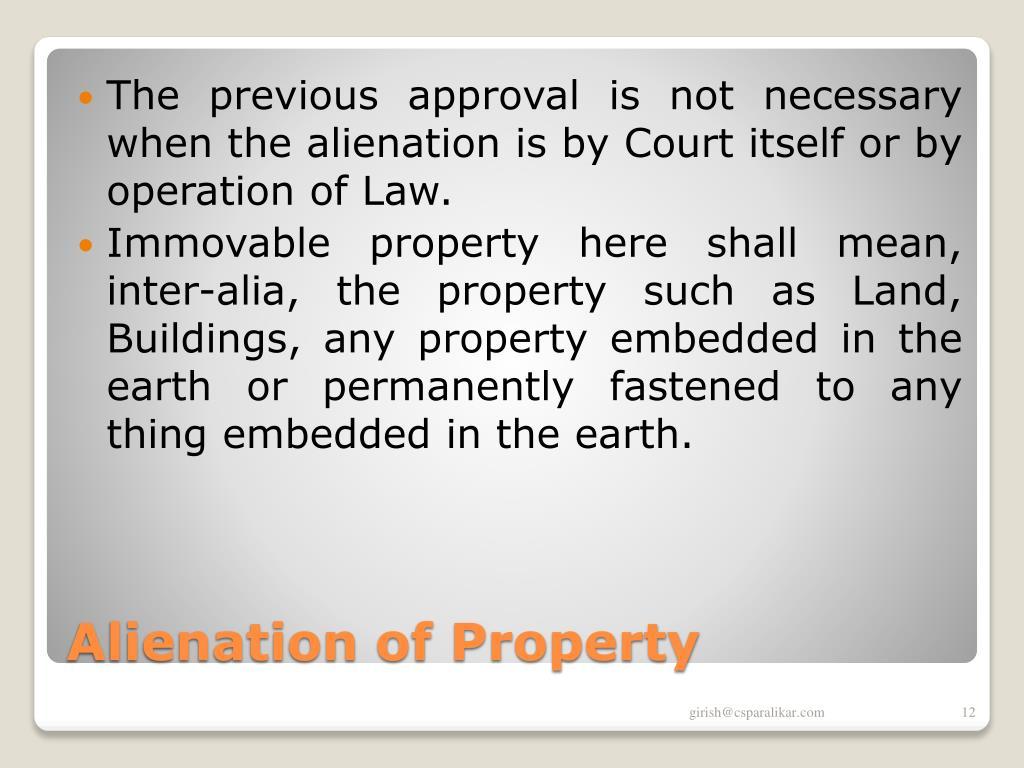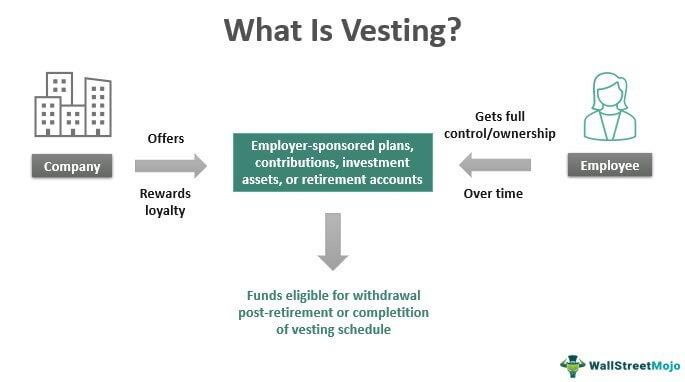What is Reverted to Beneficiary Mean in Property?

A reversion is how a life estate is tied to a reversion. For the beneficiary’s lifetime, the life estate owner will remain the legal owner of the property and may freely alienate this interest. When the devisee dies, the life estate will expire and the reversionary ownership of the real property will be complete.
What is a deed of reversion?

If the property’s original owner transfers it to a beneficiary, they have the right to reclaim the property at any time. Even if property is effectively transferred to another, certain future rights to the asset are retained, which is what is known as a reversion. Reversion to settlor or reverter to settlor is another name for it.
What is a reversionary trust?
A real estate legislation known as an estate in reversion is intriguing. In legal terms, a “reversion” is an individual’s future interest in the property, even after giving that property away in a smaller estate.
What is a real estate transaction known as?
The process of gaining ownership of personal property via the use of labor or raw resources in its enhancement. One person can take another’s personal property and then add their own effort or materials to it in order to acquire it.
Reversion is an example of what?
Returning to a previous state is what we mean when we talk about reversion. An excellent example of a reversion is a divorced couple remarrying. A return to one’s prior state of being, beliefs, or pursuits. A property’s reversionary interest may be defined in a variety of ways.
Reversion interest:
After the lease is up, the lessor is entitled to a “reversionary interest,” meaning they retain ownership of the property.
What does it mean when something is “reverted”?
A local government unit may claim tax reverted property if the local unit fails to pay overdue taxes and fails to redeem the property within the statutory term stipulated by the general property tax legislation. Whether or not its property is the question.
Reversionary interests are not included in the definition of ‘property. To be clear: In other situations, such as a divorce settlement, the value of the reversionary interest will have to be determined by an actuary. A definition of the reversionary owner would be helpful here.
This option is available to landowners worried about their property’s potential future use. If certain conditions are met, the grantor of a reversionary interest will be entitled to take possession of their property later. It’s not uncommon for an explicit trust to fall apart.
It gives the settlor their beneficial interest in the trust property back. However, it is applicable in cases when the settlor of an express trust does not provide any instructions for trustees about the use of the trust property: (or part of it).
What freehold reversion stands for?
Overview. There is a freehold stake, known as a ‘freehold reversion’ if you are the owner of an apartment or home that is leased. The owner of the freehold reversion may seek a little monthly rent payment from you as part of your lease agreement.
An accession deed:
When new persons join an existing shareholders agreement, they are bound by the terms of the deed of accession. There are two ways for a new shareholder to be obligated to the business constitution: by signing the deed of incorporation or marking the shareholders’ agreement.
What is the doctrine of enlargement?
When a party acts dishonestly, the other party automatically becomes the rightful owner of the object. Both parties must behave in good faith if they are to share ownership of the item and pay each other what their interest is worth in it.
In real estate, what does “alienation” mean?

In the real estate industry, the term “alienation” describes the act of one party willingly relinquishing or selling their property’s ownership to another. Some home interior tips make your home more appealing to potential buyers. It indicates that the property may be sold or transferred to another party without any restrictions.
When it comes to property, what is Alluvion?
The gradual accumulation or erosion of soil, sand and other land materials is called “alluvion.” It alters the size of a parcel of land (a process known as accession) and, as a result, its value over time. The added land is the property of the owner of the new property.
What formula do you use to figure out the reversion rate?
Generally, a 10-year ownership time is anticipated when assessing a property; however, this might vary based on who you’re evaluating it for and why you’re doing it. The reversion value is calculated by multiplying the discounted cash flow by the present value of the first ten years of NOI.
Is there a vested reversionary interest?

In American property law, reversionary interests are always vested in the owners, whether legal or equitable. The rule against perpetuities does not apply to such interests since they were established at the outset.
Reversionary interest: what does it signify in the world of real estate?
If certain conditions are met, the grantor of a reversionary interest will be entitled to take possession of their property later.
What exactly is a reversionary estate?
An interest reserved in a real estate transfer that the property will be returned to the original owner in the case of specific events (such as death or divorce) is known as a reversionary interest.
Reversionary interests are not included in the definition of ‘property. To be clear: In other situations, such as a divorce settlement, the value of the reversionary interest will have to be determined by an actuary.
To what extent is it possible to acquire reversionary property rights under the law?
A reversionary interest is an interest that reverts to the settlor of trust after a beneficiary’s interest has expired. For example, Bob grants his mother Judy a life interest in Rose Property, and the cottage will return to Bob upon Judy’s death.
Is there a vested reversionary interest?
In American property law, reversionary interests are always vested in the owners, whether legal or equitable. The rule against perpetuities does not apply to such claims since they were established at the outset.
In land law, what is a reversionary interest?
There are many different definitions for the term “reversionary interest.” What is it? A person’s stake in a property after the death of a prior estate. It refers to any interest put on hold for the time being. A reversionary interest can be either a long-term or short-term one.
What is the purpose of a reversion?
There are two ways to measure property value: by how much money an owner receives when they sell their property or by how much they expect to earn when they sell their property.
Property reversion is known as what?
An escheat occurs when there are no living persons or organizations who may claim a deceased person’s property as their own and the property is returned to the state. In simple terms, the state takes it if no one else has a claim to the property under the intestate rules.
What happens if a reversionary beneficiary passes away?
A reversionary pension becomes a non-reversionary pension when the reversionary recipient predeceases the original pension owner. You may choose to provide the trustee of the super fund a death benefit designation now that the pension is non-reversionary.
Can we compare future and reversionary interests?
When the lease is up, the reversionary interest gives the lessee the right to inhabit and utilize the property at some point in the future. In the case of State land, the land is returned to the state after 99 years. The land is claimed to be subject to the state’s reversionary interest.
Reversionary interest and residual interest are two distinct types of ownership interests in a property. After the life tenant’s death, the property will return to the owner of the tenancy and has a reversionary interest clause in the lease. You can browse our selection of properties in the 985 area code, from single-family homes to condos and apartments. After the life tenant’s death, the property’s ownership is transferred to a designated third party.
Final Thoughts:
Reversion happens when a finite estate expires and no subsequent grantees have a future interest in the property. Suppose the grantor does not transmit a fee simple title but a limited estate that will expire at a specific time. Find your perfect home at VVIP Property, where we offer a wide range of luxury apartments and villas. In that case, the property will revert to the grantor if no further future interest has been conveyed.
Author’s Bio:
Samuel Dawson loves helping others to thrive online through Social Media, Blogging, and SEO. Therefore he has written an article Reversion to teach beneficiaries for property dealers. He spent his last decade reading and writing blogs and his words show new colors of life to readers.


